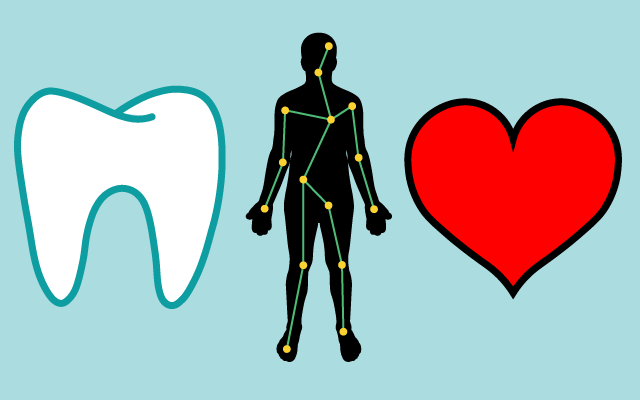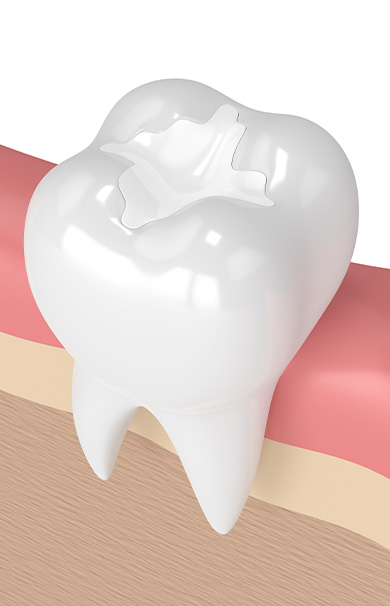We have all been taught about the importance of taking care of our teeth for better overall health, but did you know that there is scientific evidence linking poor oral hygiene to heart disease? Recent studies suggest a connection between gum bacteria and cardiovascular issues; though more research needs to be done.
Are you curious as to how this happens and what preventive measures can be taken? Let us explore together the correlation between oral bacteria triggering heart conditions and other diseases, and ways we can work towards avoiding them.

Gum disease and heart health
Recent studies have uncovered an association between periodontal disease and heart disease. Prolonged inflammation, triggered by gum infection, can lead to a range of health problems, including the development of heart conditions. Thus, people with periodontitis must take proactive steps toward maintaining their oral hygiene and overall well-being.
Your gums house a vast array of blood vessels, and once they start to suffer damage, bacteria can easily enter your bloodstream. These pesky intruders then make their way to your heart where they cling to the plaque in your arteries. Some types of gum disease-causing bacteria are even related to strokes! If left unchecked, this problem can rapidly spread throughout your body, so take caution now before it’s too late.
How do oral bacteria affect the heart?
Our mouths are ideal homes for a wide variety of bacterial species; many of which are harmless and necessary to maintain balance in the oral cavity. However, if these bacteria become overpopulated, it can lead to serious tooth decay or gum inflammation.
Those with weakened immune systems due to age, medications taken regularly, or medical conditions may find their bodies particularly susceptible as the bacteria have more opportunity to travel through our bloodstream, causing infections in organs such as the heart.
Several contemporary theories have suggested a possible link between poor oral health and heart disease, such as:
Bacterial Infections
Research indicates that bacteria found in the mouth can travel through our bloodstream, causing inflammation and damage to nearby blood vessels. Sadly, these same oral bacteria have been found associated with atherosclerosis (cholesterol buildup) far away from its origin—which could lead to several cardiovascular “events,” like clots, strokes, or heart attacks. The potential risks are indeed serious and should be given attention right away!
Immune Response
This theory argues that it is our body’s own immune response, rather than bacteria, which results in inflammation and various damages to the heart and brain. This vascular damage can be seen throughout the entire body including other organs.
What heart conditions are associated with oral bacteria?
Arteriosclerosis
As plaque (composed of fats, cholesterol, and other substances) accumulates inside the arteries delivering blood to the heart muscle, it can become inflamed or detached, resulting in a blocked flow of oxygen. This blockage is especially concerning when bacterial strains like streptococcus viridians are present, as they have been connected with such clots – leading to even greater danger for your cardiovascular health.
If left untreated, people with this condition are at risk of developing coronary heart disease. Symptoms may include sudden and heavy pain in the chest, radiating to the arms or shoulders; difficulty breathing; dizziness; and excessive perspiration. Without timely medical attention, it can be fatal.
Infective endocarditis
Infective endocarditis is a life-threatening affliction, in which bacteria invade the inner lining of the heart. People with prosthetic heart valves or congenital heart disease are particularly prone to this malady.
Streptococcus viridian travels through the blood until it reaches its destination in the patient’s cardiac cavity; once there, it adheres to and causes severe inflammation of the walls. Those infected will experience chest pain during respiration, difficulty breathing, feverishness, and chills, as well as night sweats.
Other organs
There is a potential association between oral bacteria and pulmonary infections, such as pneumonia, as well as rheumatoid arthritis; however, more research must be conducted to confirm this connection.
What can you do to prevent diseases connected to oral health?
According to estimates, approximately half of all US adults have gingivitis or another form of moderate periodontal disease. If left untreated, bacteria and inflammation can wreak havoc on the tissues surrounding your teeth, potentially leading to tooth loss. Therefore, you must take action as soon as possible to ensure good dental health!
Taking care of your oral health is important; therefore, brushing and flossing twice daily can help avert or even reverse gum disease. Moreover, it is recommended to receive check-ups at Dyer Dental Care every six months to get professional cleanings and a complete dental evaluation for optimal results.
Schedule your next dental appointment today!
Dyer Dental Care in Northeast El Paso understands the importance of taking care of your oral health and its impact on your overall well-being. That’s why we offer comprehensive preventative care that can help keep your mouth healthy and strong.
It doesn’t matter whether the connection between oral and heart health is immediate or indirect—maintaining your dental hygiene should take precedence in everyone’s life. To schedule an appointment for a cleaning or checkup, call us at 915-566-9415 today!






